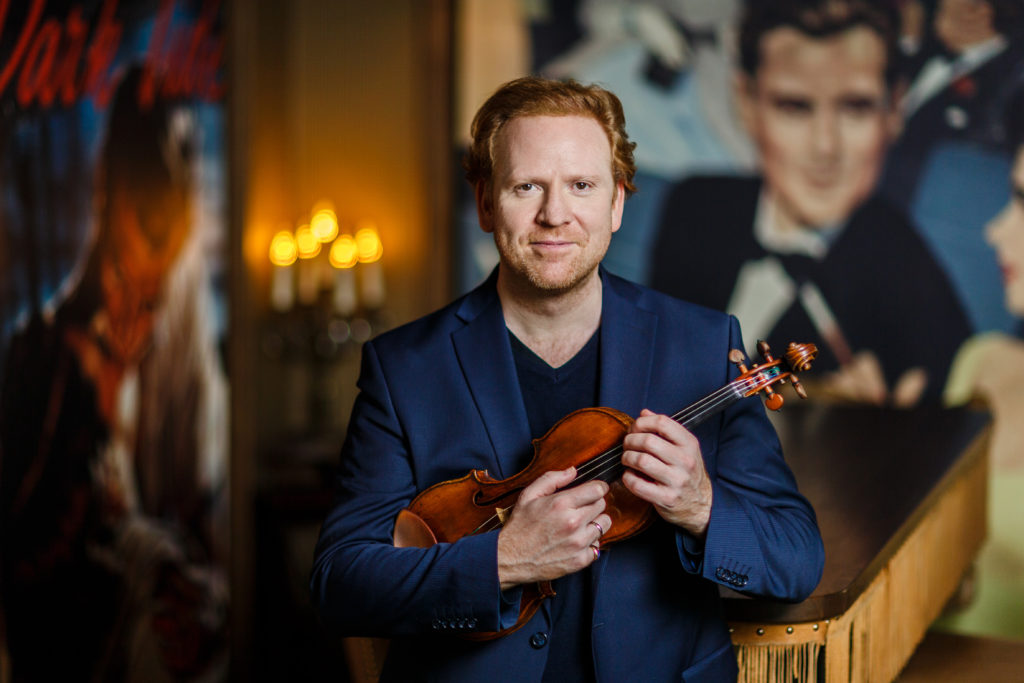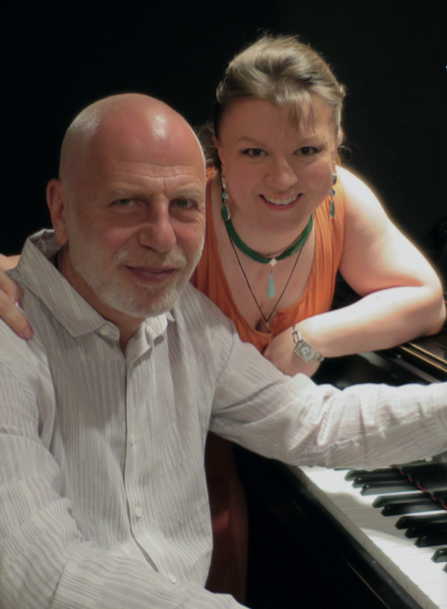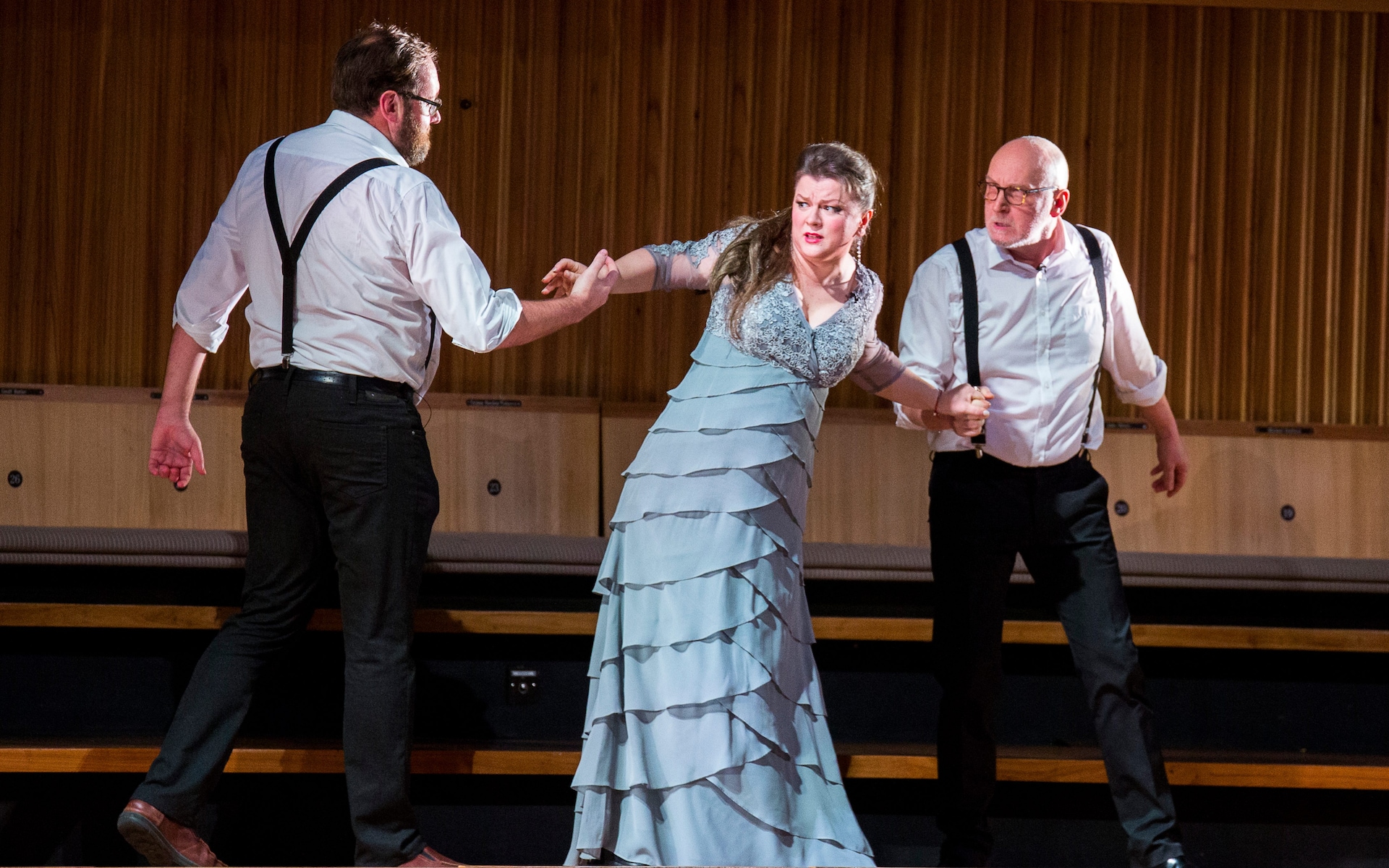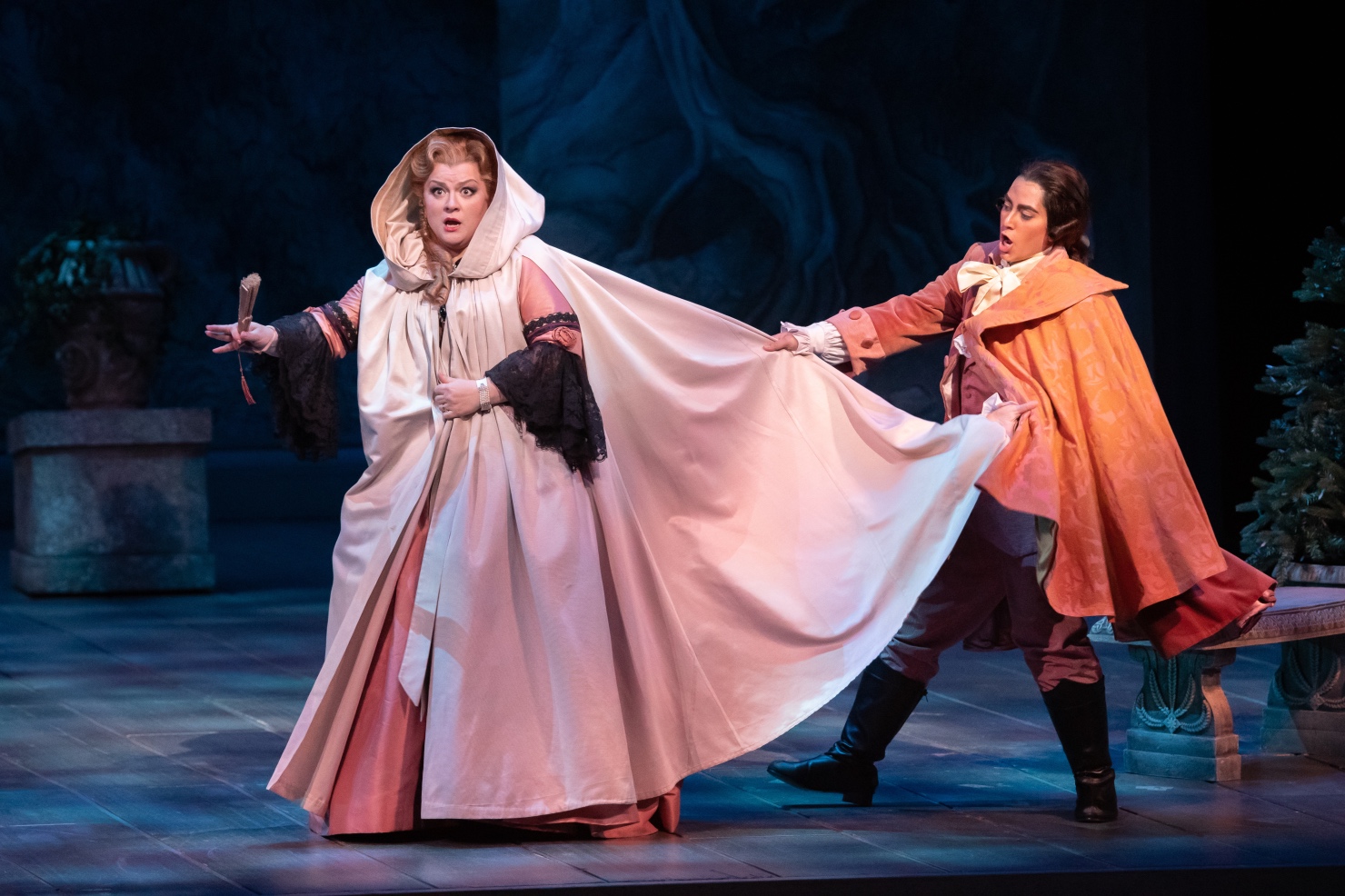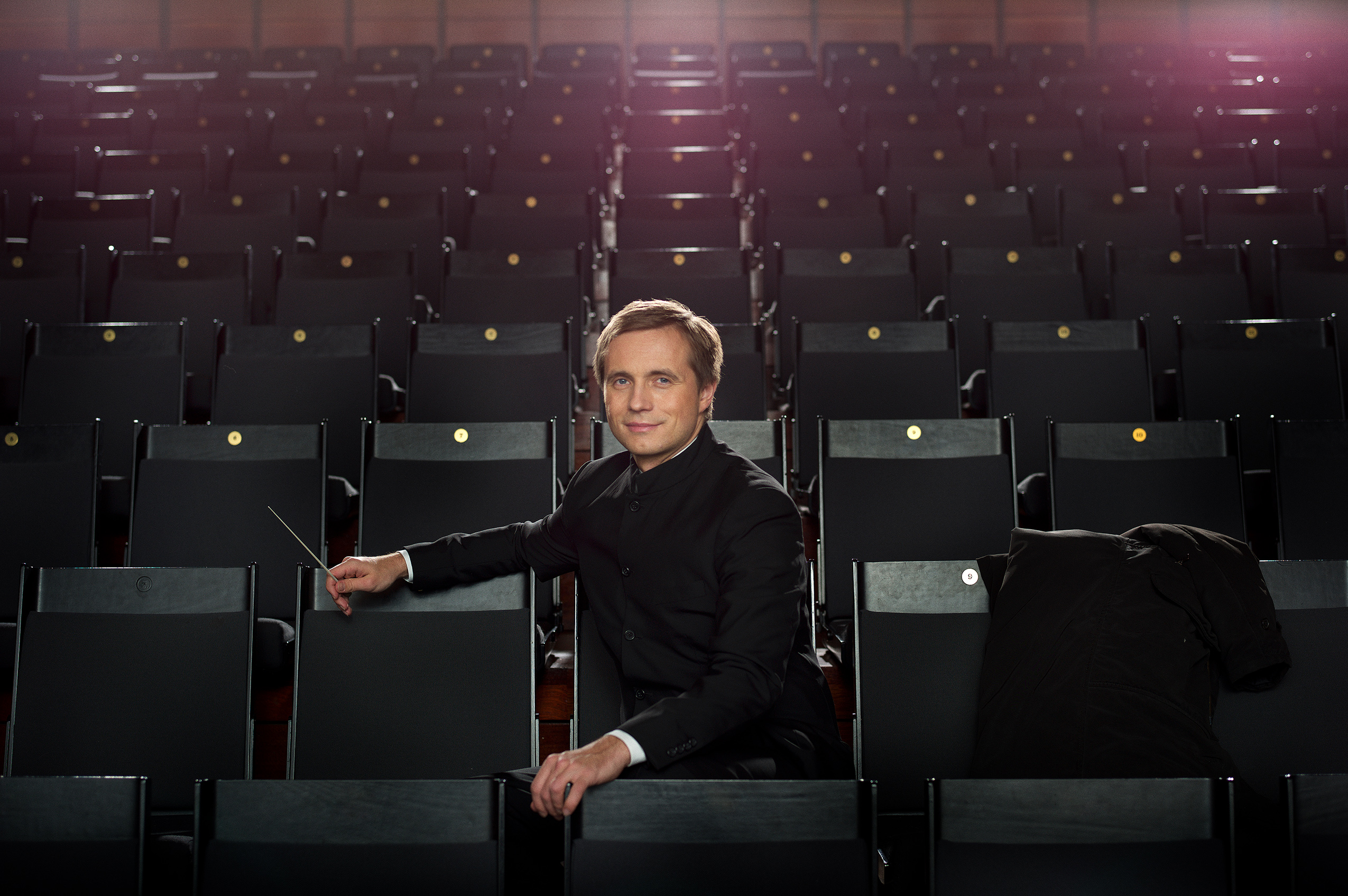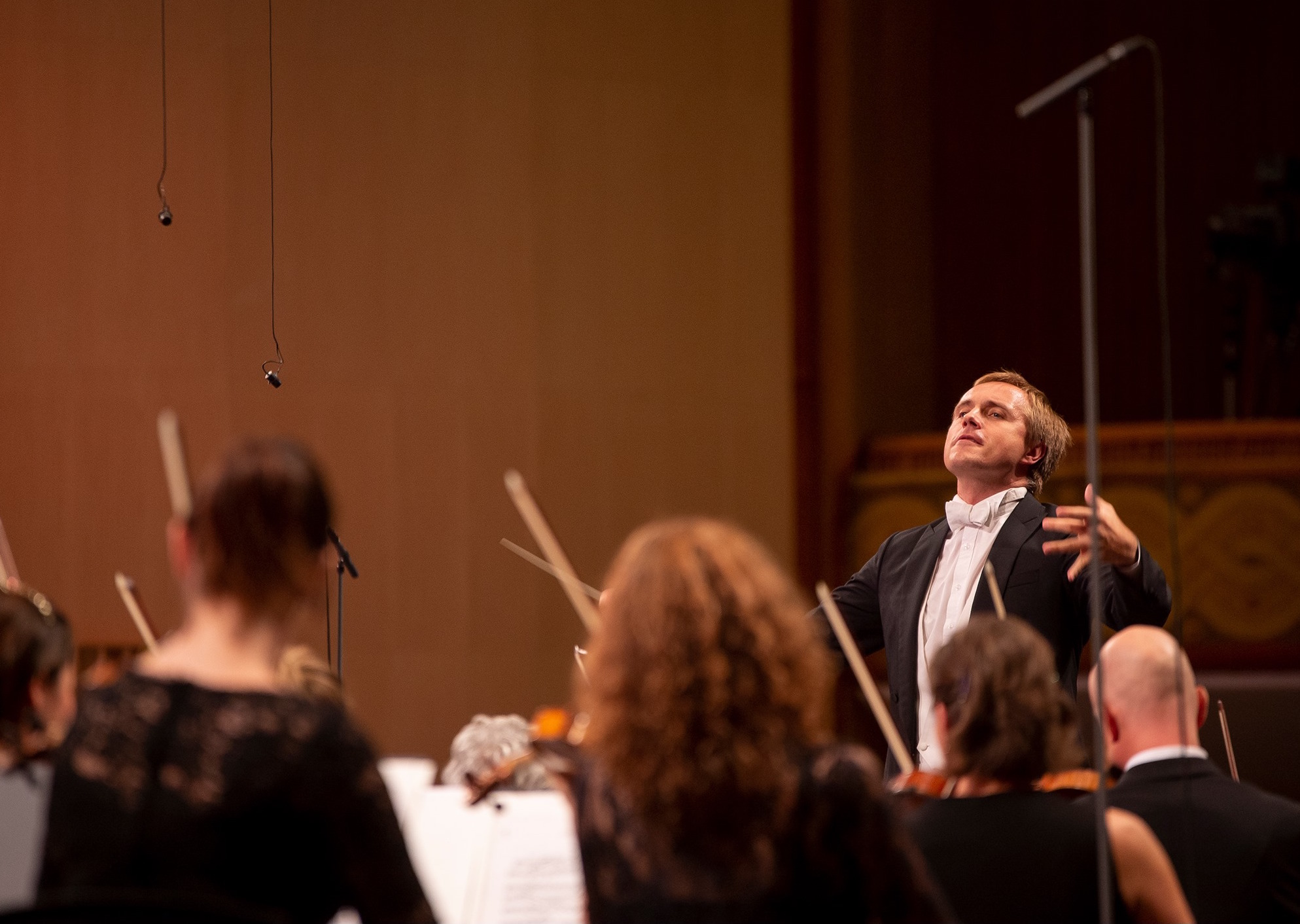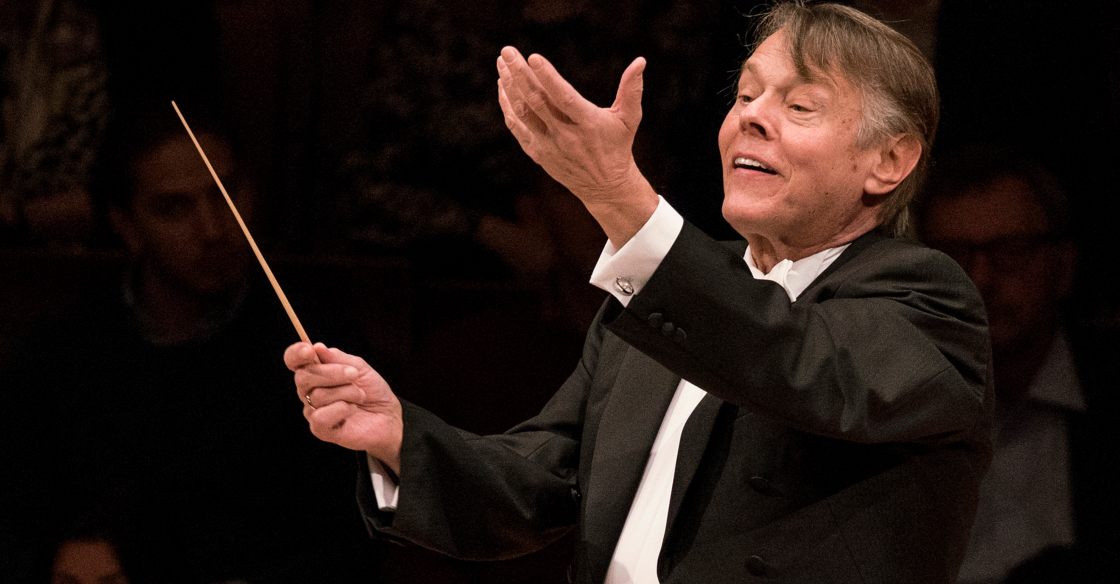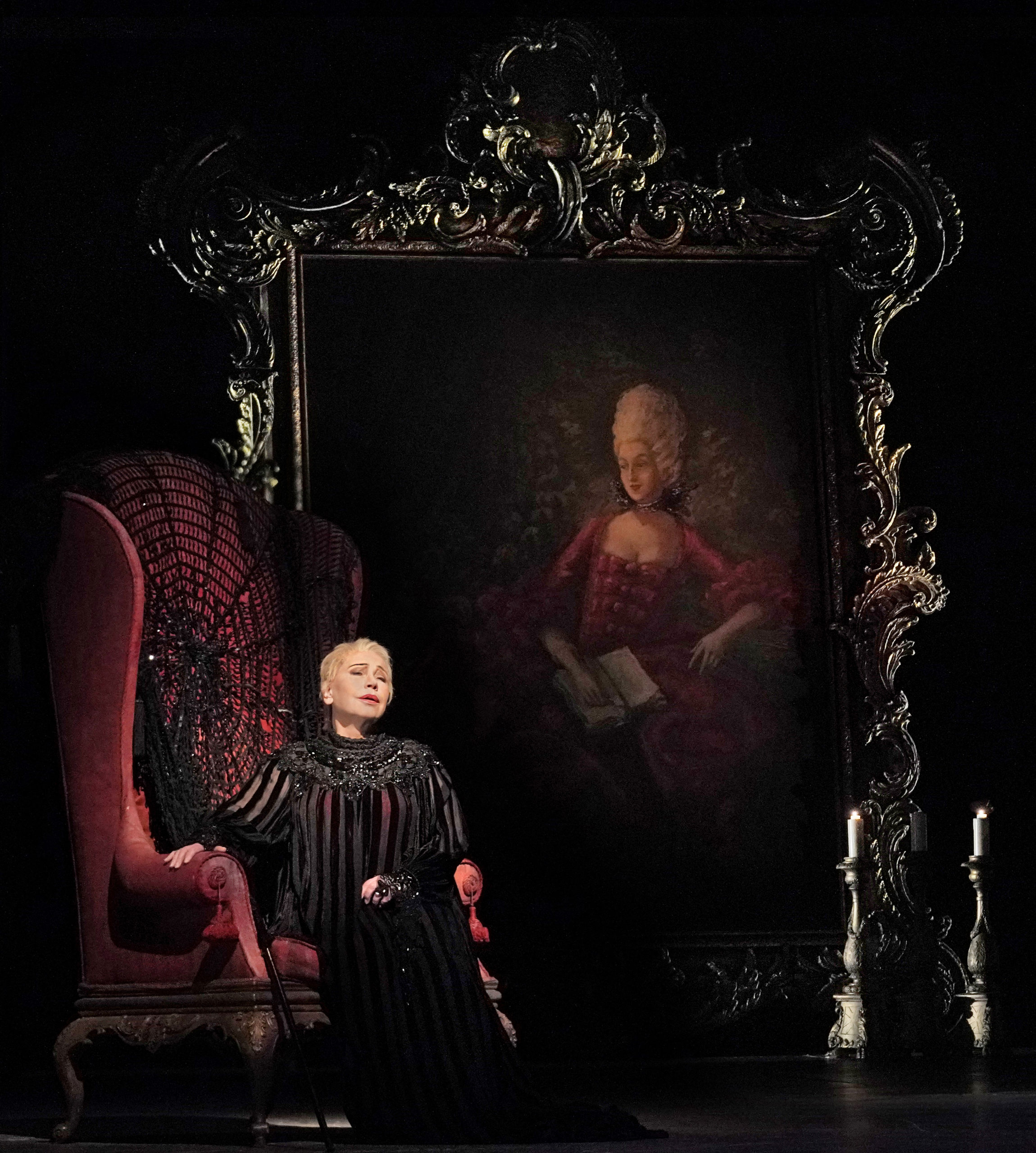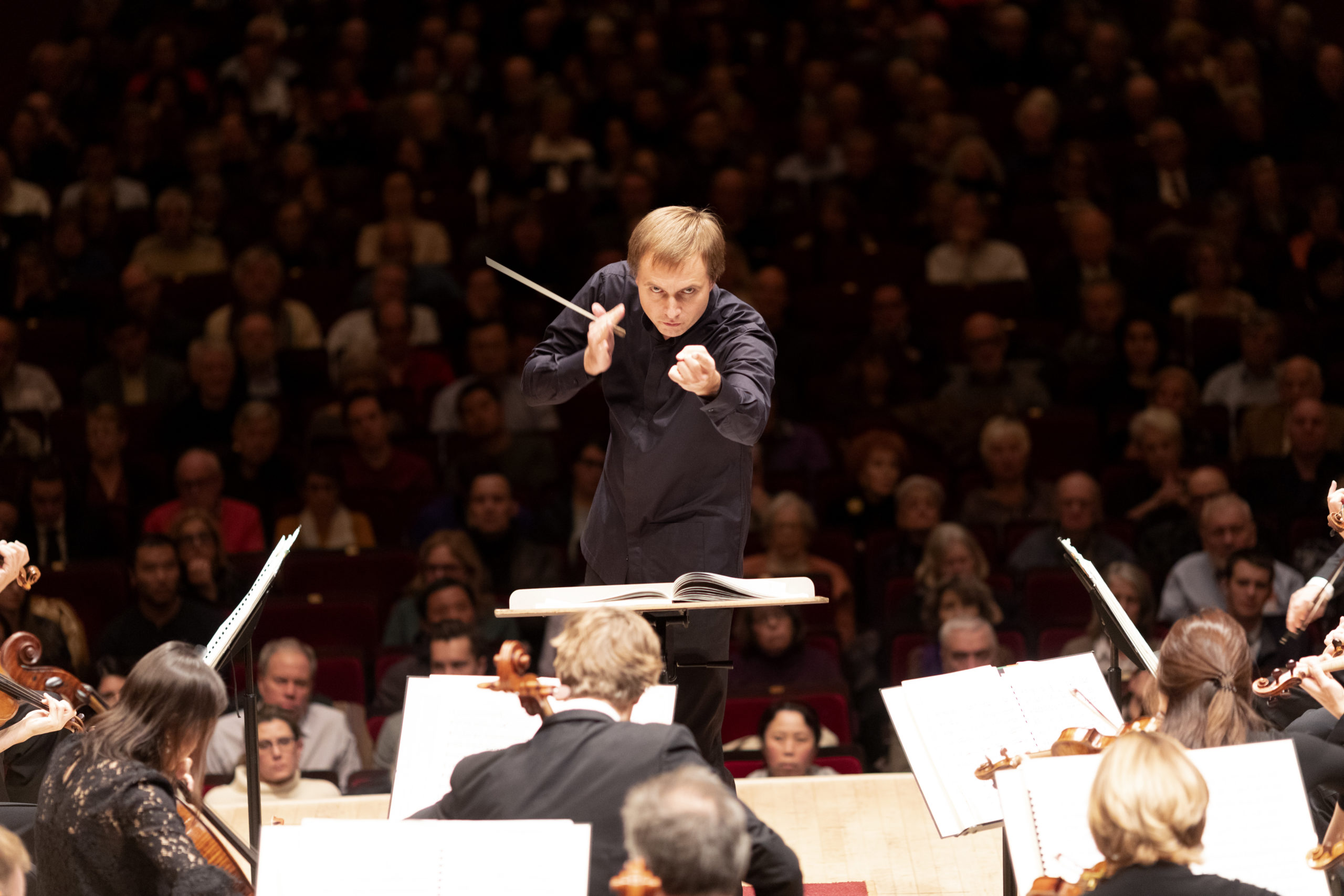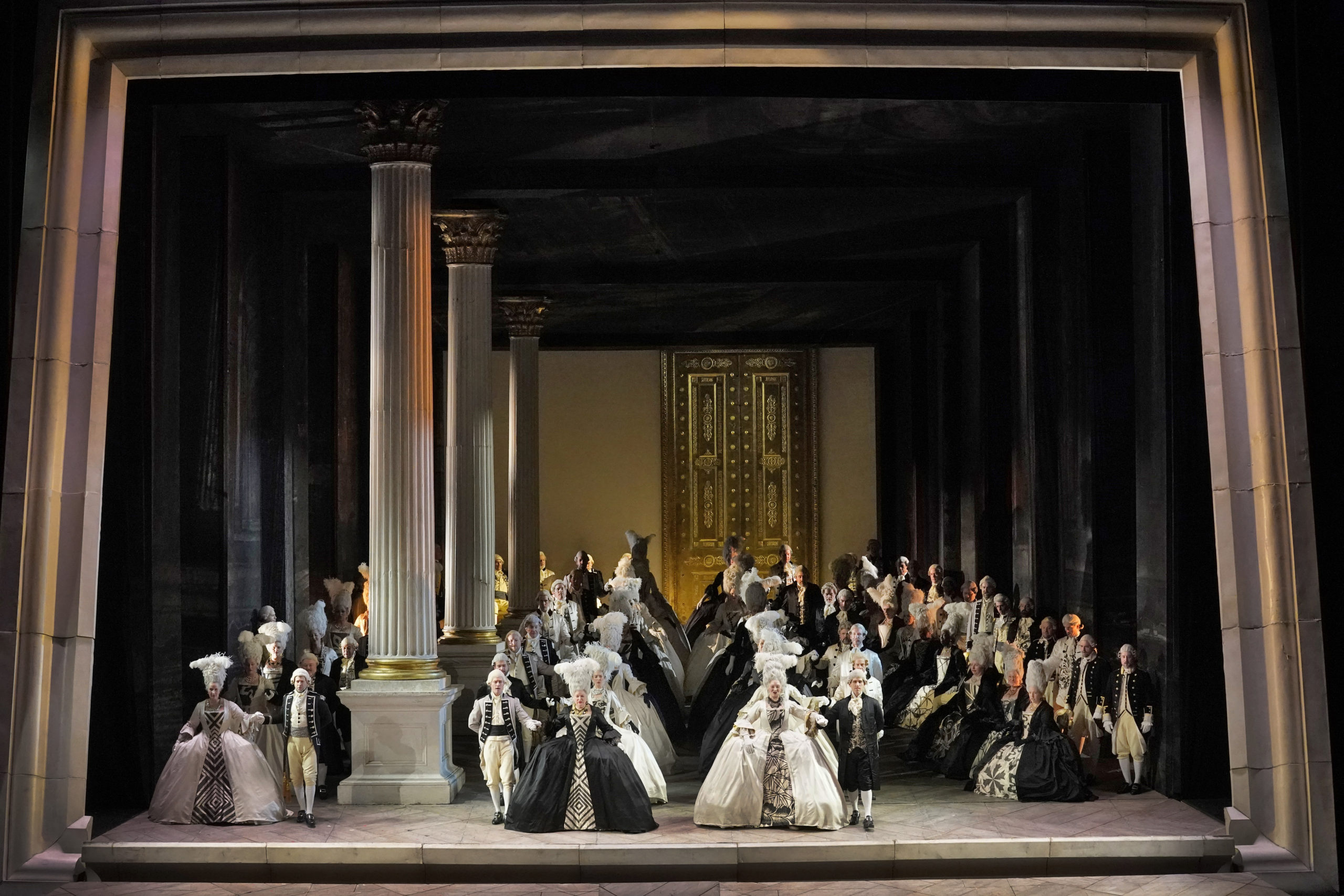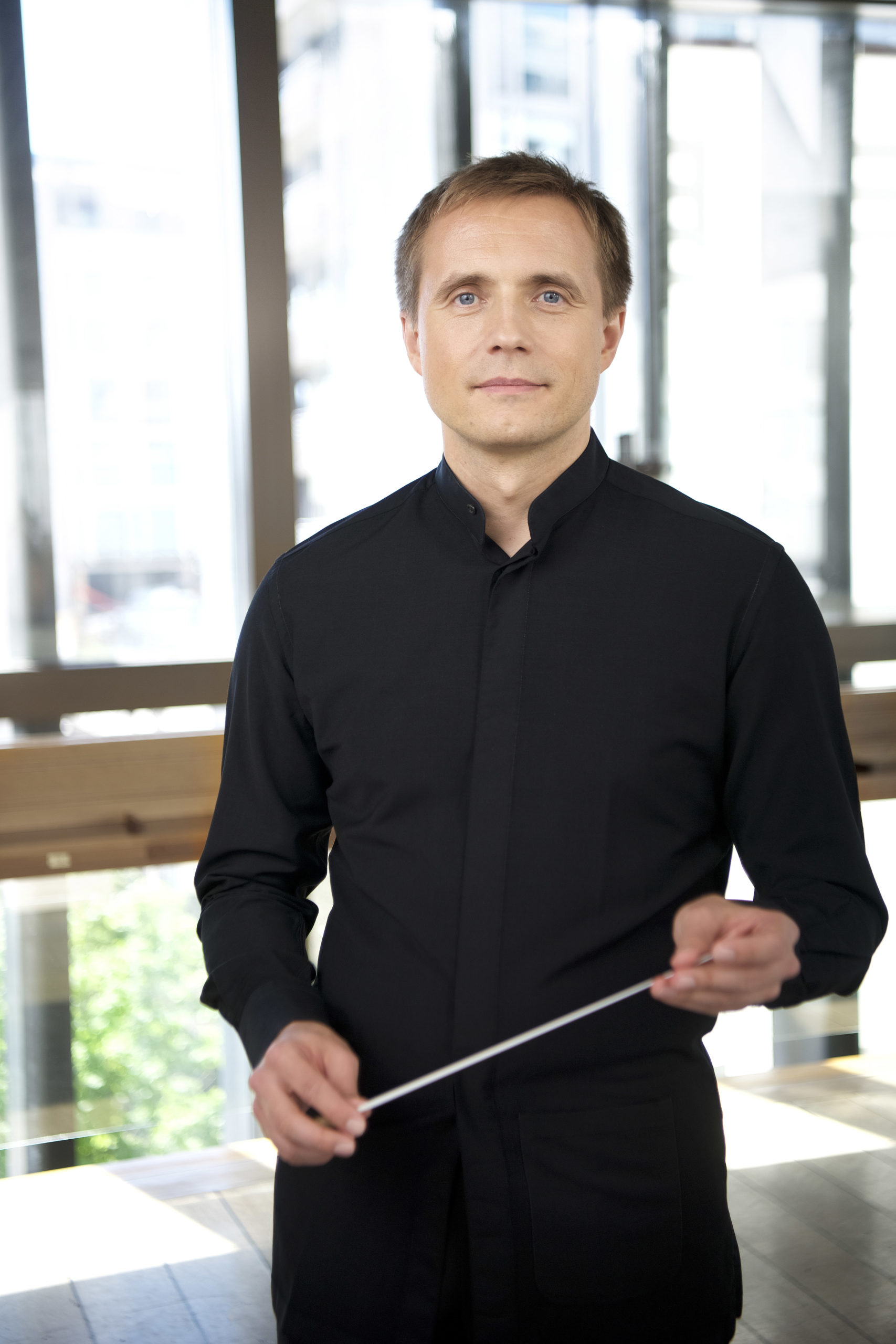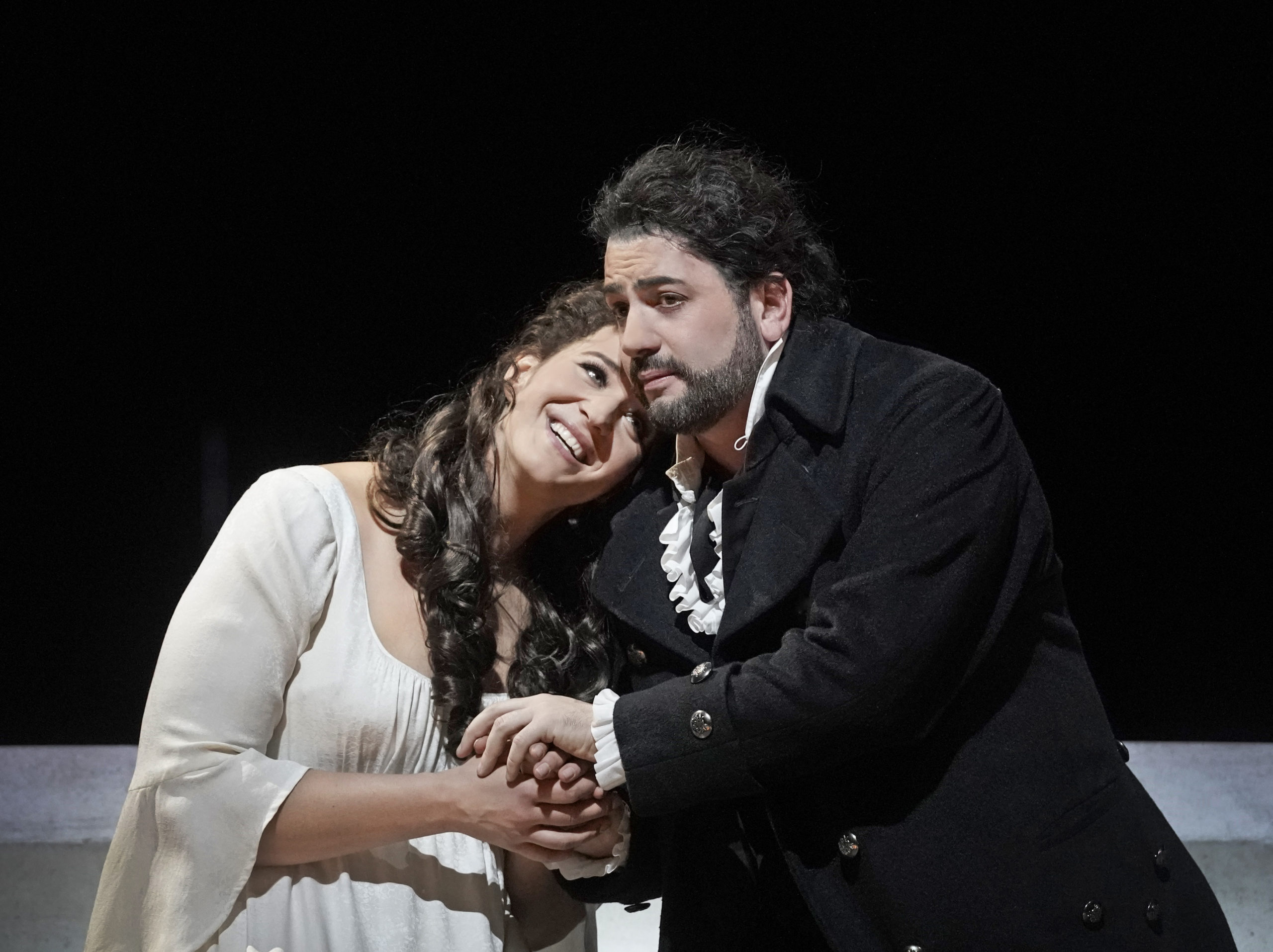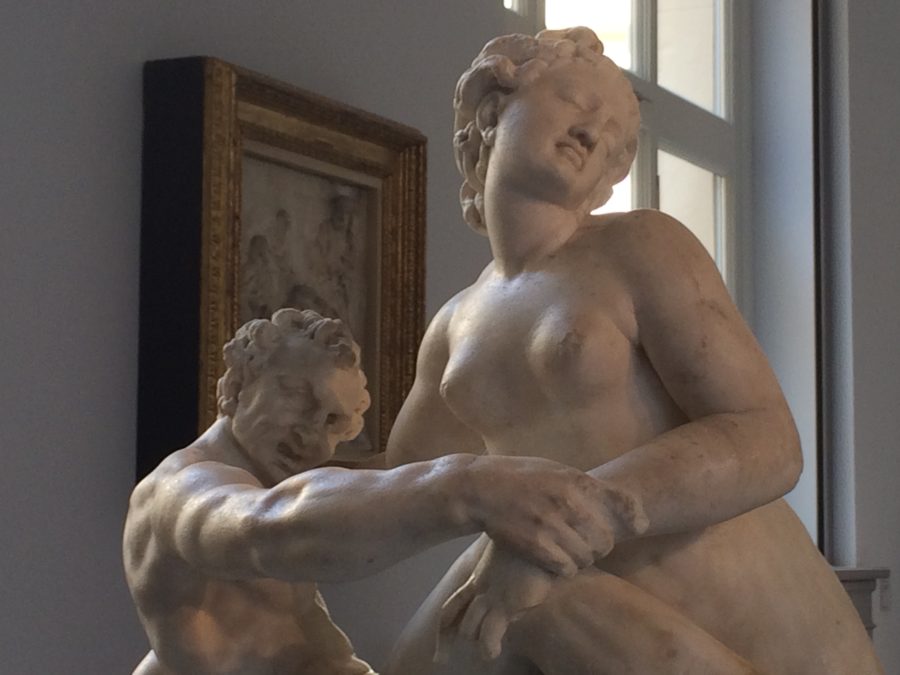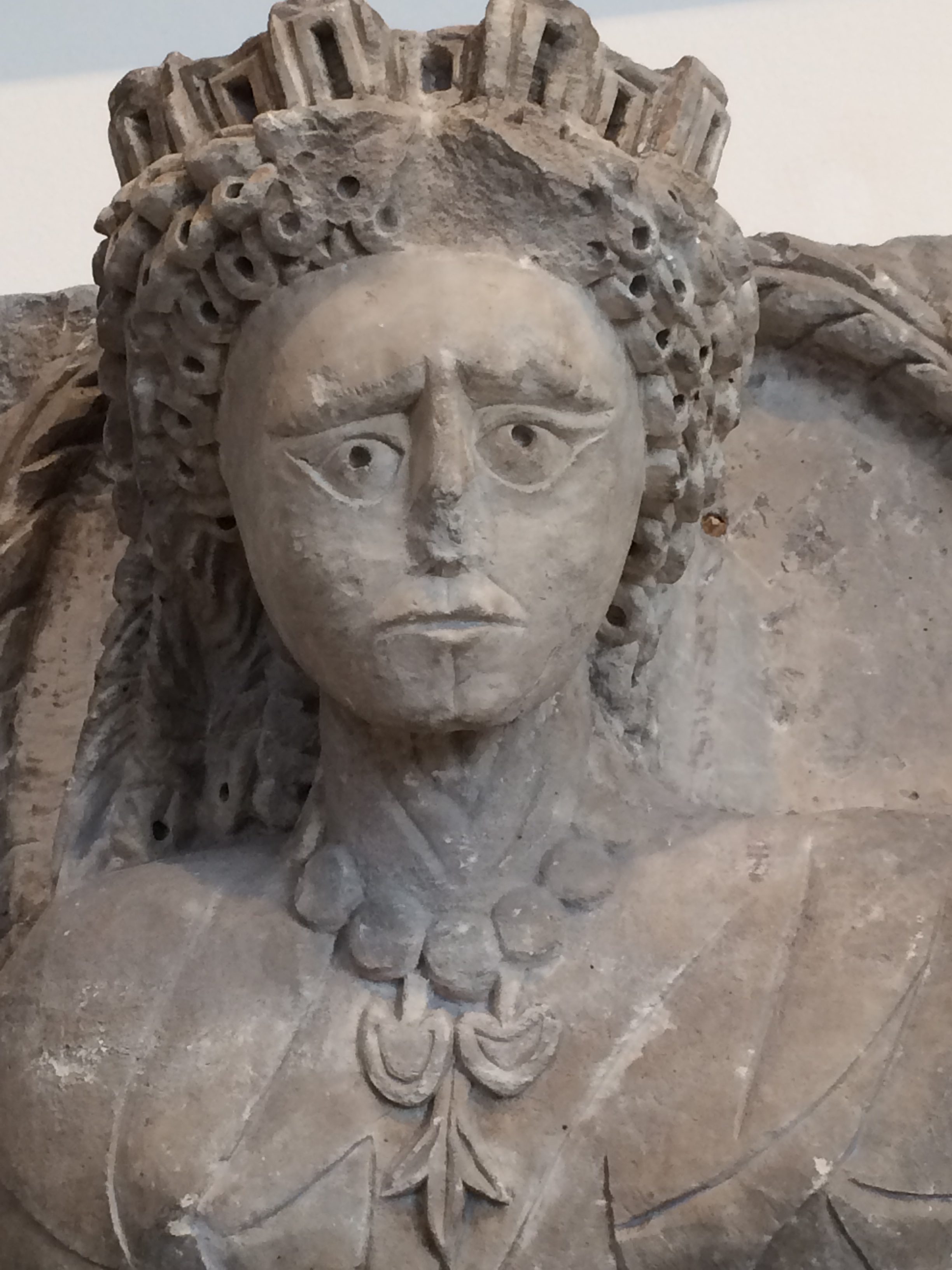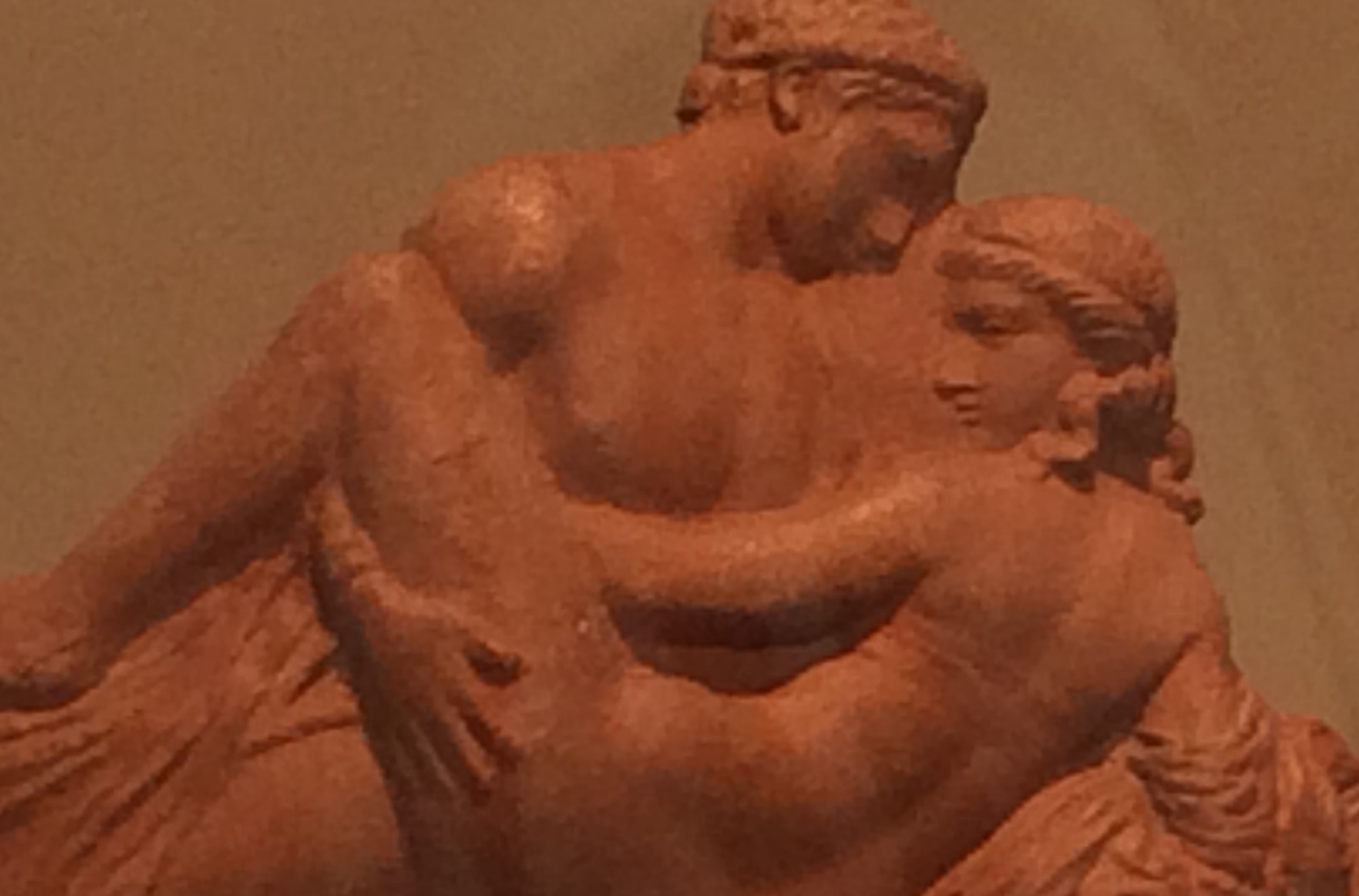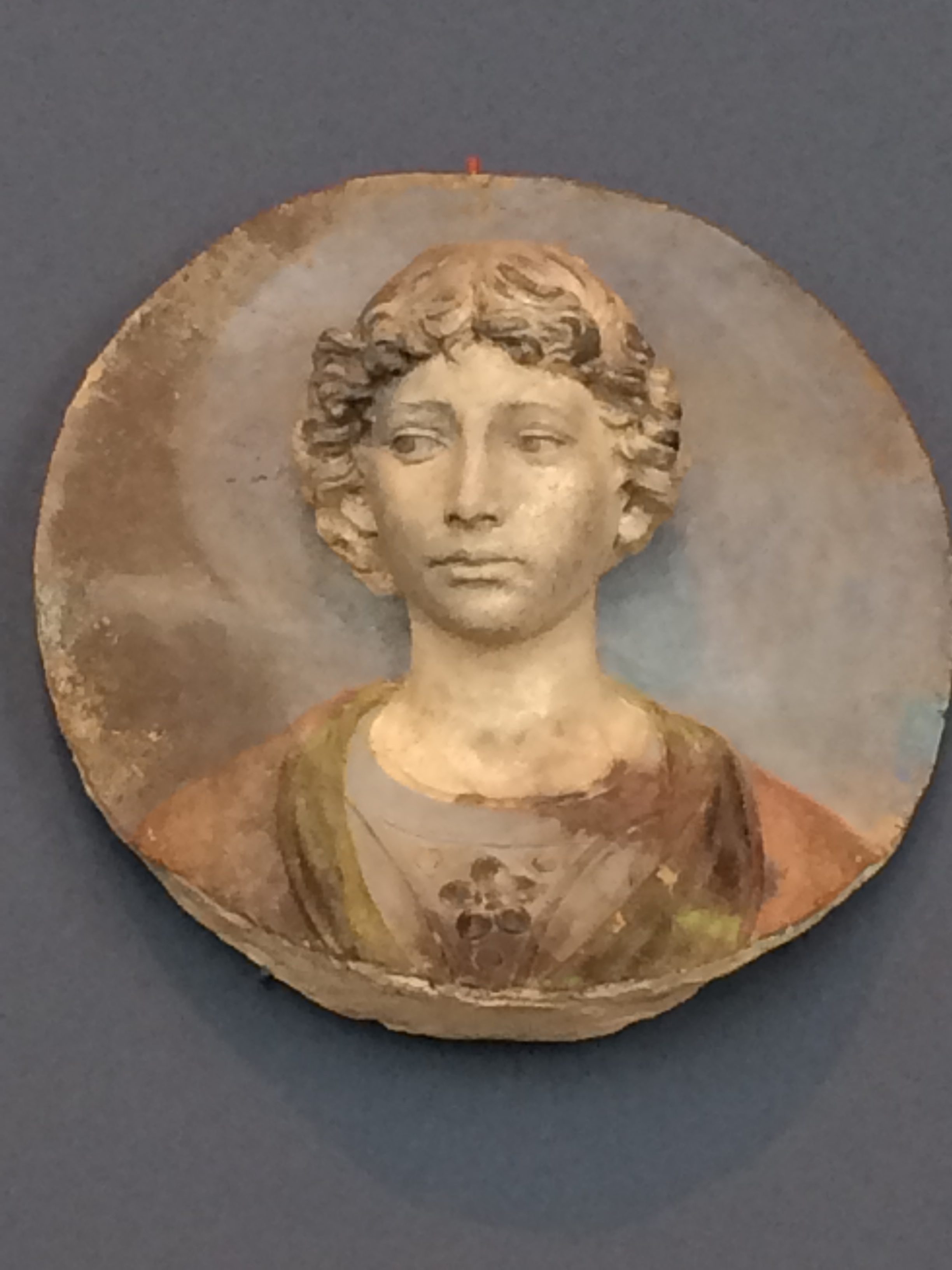Among the varied aspects to emerge from the reporting on the invasion of Ukraine has been the near-unquestioned move toward binary modes of thought in culture: like this; hate this; do not question that; definitely demand that. War kills nuance, as everyone knows, and in some cases this clarity is good, even needed, terribly overdue. In the past I have praised various classical figures who made clear public statements following Russia’s invasion of Ukraine; such clarity of language, I wrote (and stand by), was and is required in such a horrific situation. Clarity is also the thing that is weaponized by a good many now, two months into the war, a quality meant for what is perceived as a good cause, but more often used as a cover for inconvenient truths. When organizations demand artists make public statements, context must be considered first and foremost (the context of the organization: who their donors and sponsors are; what their budgets are; who their audiences are and what type of programming they expect; for artists: history; family; old-current-future repertoire; work connections; personal connections; all the tenuous connections therein). More often than not, contextual detail is the last thing considered, and is usually ignored entirely within the cultural media landscape.
This is a pity, I think; transparency is a cornerstone of both good journalism and good human relating, but it is the quality most often left at the door for the sake of expediency, politics, personal gain. In its place, buzzwords – simplistic, reductive language that generates outrage and clicks – which do little to foster deeper understandings of the inner workings of culture and the sociological implications of such language choices within it. For weeks – months – I have wondered when or if this language of reduction might cease, and real investigations might begin; when the phrases “cancel culture” and “politically correct”, both of which are thrown far too lightly around now, might be dismantled with the kind of thoroughness which is so sorely needed within the cultural realm. I desperately wanted to believe some semblance of nuance could be found in the one spot that sets itself up as a paragon of thoughtfulness and (supposed) humanism: the arts. Is there even room for nuance in a time of war? Should there be? Some would argue firmly “no” and I am not in a position to argue with those individuals. I still think nuance matters; I would argue it matters more than ever.
As I have written in the past, shrinking budgets for education and public broadcasting, together with the new normal forced by pandemic, and old one of publishing, mean that populism dictates decisions as much in culture as in media. To reference what Richard Morrison wrote in The Times recently, there is now a move to label what is challenging as “elite” and to dismiss the perceivably “difficult” (it isn’t) as a waste of money, time, and energy. Much more favoured now (in programming as much as publishing) is that which will generate hype, attention, clicks – maximizing revenue (and ad tech machinery), justifying budgets – giving the public “what they want”, by paying the least for what will generate the most. Thus, there are no investigations, no contextualizations, no dismantlings – but lots of clickbait, lots of binary thinking, lots of reductive language, all of it in perpetuating as if in a hall of mirrors, an ever-starved ouroboros of outrage, ever-spinning out more “content” with nary a concern for the easy phrases used therein. But language, as recent times remind us, creates various forms of lived reality. Who uses it, how, and why, determines and shapes the reality for one, and for many; witness the ways in which Russian-language media sites have characterized the war and those involved, or, more colloquially, the ways in which the word “woke” has been used (and lately weaponized). Consider the many ways in which curse words have entered the popular lexicon over the past three decades, losing some of their shock value in certain cultures, gaining a new level of horror in others. This experience of language extends to the ways in which we discuss, understand, and frequently reduce cultural matters – people, productions, presentations, official announcements and decisions – within public consciousness. Thoughtful analyses and contextualized methods of presentation are needed, yet more often than not incendiary language, divorced entirely from such thoughtful modes, prevails. Are Russian artists really being “cancelled” in certain places? Or are figures and organizations in those places determined to obfuscate specific financial trails that could prove questionable if given public scrutiny? Is there a trail that needs following, one made up of Euros, roubles, franks, of casting couches and gold-leaf steaks and private boxes?
Axel Brüggemann thinks so. The German arts journalist recently followed, and reported on, those financial trails, specifically the timely ones involving the Wiener Konzerthaus and its Artistic Director Matthias Naske; conductor Teodor Currentzis and his respective organizations, MusicAeterna (of which Currentzis is founder and Artistic Director) and SWR Symphonieorchester Stuttgart (of which he is Chief Conductor); sanctioned Russian bank VTB; a planned benefit concert for Ukraine which did not ultimately take place. In reports published at classical music site crescendo in April, Brüggemann (who is crescendo‘s ex-editor-in-chief) outlines the ways in which the opera/classical world has been (is) a place overdue for examination, particularly within the financial realm. That the cultural realm should have such connections is hardly shocking, even if it does now bear deeper scrutiny in light of current circumstances and related sanctions. New York Magazine published a detailed feature on April 1st (“How Russia’s Oligarchs Laundered Their Reputations In The West“) which outlines the ways in which various Russian oligarchs, notably Len Blavatnik (who has been called “Britain’s wealthiest man”) have heavily supported non-profit organizations, including numerous cultural outlets. As writer Casey Michel writes, “On and on and on, U.S. and British nonprofits appeared all too happy to take part of Blavatnik’s wealth and to praise him for his largesse without bothering to highlight any of his links in Russia. (To be clear, there’s no allegation of any illegality on Blavatnik’s part.) Nor could these institutions claim they were unaware of Blavatnik’s ties in Russia — or the controversy these donations generated.” In his post from April 11th, Brüggemann himself notes the many financial ties between individuals, corporations, and various classical events and the questions raised therein, and he makes a detailed account of the planned benefit for Ukraine, its players, its questionable aspects, and outlines the complex web of politics, music, and money which has long fueled large swaths of the classical industry, quoting a statement sent to him from Vienna’s City Councillor for Culture, Veronica Kaup-Hausler in which she states that she was not aware of Naske’s work with the MusicAeterna foundation. (On April 22nd, Austrian public broadcaster ORF reported that Naske has resigned his position on MusicAeterna’s Board of Trustees.) Brüggemann wrote on the 11th, “Es ist Zeit, die Korruption der Klassik aufzudecken, ihren aktiven und passiven politischen Missbrauch durch Künstlerinnen und Künstler. Auch Schweigen hat in dieser Zeit eine Bedeutung.” (“It is time to expose the corruption of classical music, its active and passive political abuse by artists. Silence also has a meaning in this time.”)
The call was answered with a fair amount of criticism in German media, with many accusing the busy media figure of a personal vendetta against Currentzis, of whipping up a mob mentality, and perhaps most interestingly, of naivete. Writer and cultural commentator Peter Jungblut posted an editorial at the website of Bavarian public broadcaster BR Klassik, with a direct title: “Warum “Saubere” Kunst Eine Utopie Ist” (“Why “Clean” Art Is a Utopia”, April 21). In the brief piece, he makes mention of disgraced American philanthropist Alberto Vilar and notes the infeasibility of the classical industry to divorce itself from its financial ties at this juncture, and the inherent hypocrisy of making such a demand. “Seien wir ehrlich: Wirklich “moralisches” Geld gibt es nicht, Wirtschaftsbetriebe sind keine Wohltätigkeitsorganisationen, und keine Produktion der Welt ist völlig unangreifbar.” (“Let’s face it: there is no such thing as truly “moral” money, business enterprises are not charities, and no production in the world is completely unassailable.”) Whether one thinks the term “false equivalency” is relevant here greatly depends on the context in which one approaches (and especially perceives) culture; it is worth pondering its role and continuance in our current age, especially given the continuance of covid and the related financial fallouts. If Me Too, BLM, and global pandemic were not the catalysts for change within the industry – is war? More specifically, are the things resulting from this war the agents of change, namely threatening the hand that feeds all else? How far should the Faustian bargain go? Where is the place where financial and moral meet, or can they?
“So we’ve reached our wits’ end, the point where you gentlemen lose your head. Why do you seek our company, if you can’t handle it? You want to fly, but your head goes dizzy. Well – did we force ourselves on you – or was it the other way round?”
(Mephisto, Urfaust: Goethe’s Faust in its Original Form after the Göchhausen Transcript, trans. John R. Williams 1999 and 2007)
How such timely cultural matters are discussed, why one wants for it so much now, and the specific language used around (and within) such exchanges determine how the classical world can (might) create, perceive, present, produce, and receive live culture moving forwards. That line in the sand, of what is acceptable and what is not, when, is (has been) different for a great many, and will continue to shift. The line is personal; the ways in which it is answered are not. Such responses, particularly coming from those working directly within the creative field, possess significant social, political, and cultural ramifications. When do ethics enter the equation, and why? The ways in which this question is answered gain significance through direct and actionable manifestation within the public sphere, and thus, expand public understanding, engagement, and receptions of culture.
Brüggemann himself is no stranger to engagement with the public; he has been a known figure in German-language media for decades, as a host, interviewer, writer, critic, moderator, publisher, publicist, and filmmaker. A freelancer since 2006, he has authored books on Wagner, Mozart, systems of notation, as well as ones on politics, parenting, and the German provinces, and made numerous films on a variety of topics, including various aspects of the Bayreuth Festival and Wagner, the history of Elgar’s Pomp And Circumstance, Beethoven’s Für Elise, and Prokofiev’s Peter And The Wolf; his work has been broadcast on ZDF, arte, and SKY. In a witty, brilliant column published at crescendo last October, he examined the roles of optics, brand, social media, ego, audience expectations, artistic perceptions, and the big one – money – through a classical lens, whilst referencing the work of Walter Benjamin and Stefan Ripplinger, and noting that “Klassik wird zum modernen Gladiatorenkampf oder – nach Ripplinger – zur Peepshow, in der das Publikum Geld bezahlt, um als Pilger und Jünger am Götzendienst der Interpreten teilhaben zu dürfen. Dieses Prinzip der Pornografisierung der Klassik fordert eine immer weitere Eskalation und Exhibition dieses musikalischen Kampfes.” (“Classical music becomes a modern gladiatorial combat or – according to Ripplinger – a peep show in which the audience pays money to be allowed to participate as pilgrims and disciples in the idolatry of the performers. This principle of the pornographisation of classical music demands an ever further escalation and exhibition of this musical struggle.”) The CD series Der Kleine Hörsaal (The Small Lecture Hall), demonstrates Brüggemann’s additional talent, one placed firmly within the world of teaching; created and produced for label Deutsche Grammophon in 2008 (it won a prestigious ECHO-Klassik award), the series is comprised of discussions between children and artists who share favorite musical works, memories, and moments. Along with didactic pursuits has come predictably glamorous assignments, including attending numerous fancy events and rubbing elbows with assorted members of the classical and cultural glitterati. If the old dictum “write what you know” holds true, Brüggemann is its effective classical ambassador for such an approach. Our conversation over the course of an hour was involved, lively, and passionate, an expression of love for classical music, the industry around it, and the ways in which it is written about within contemporary (largely digital) discourse.
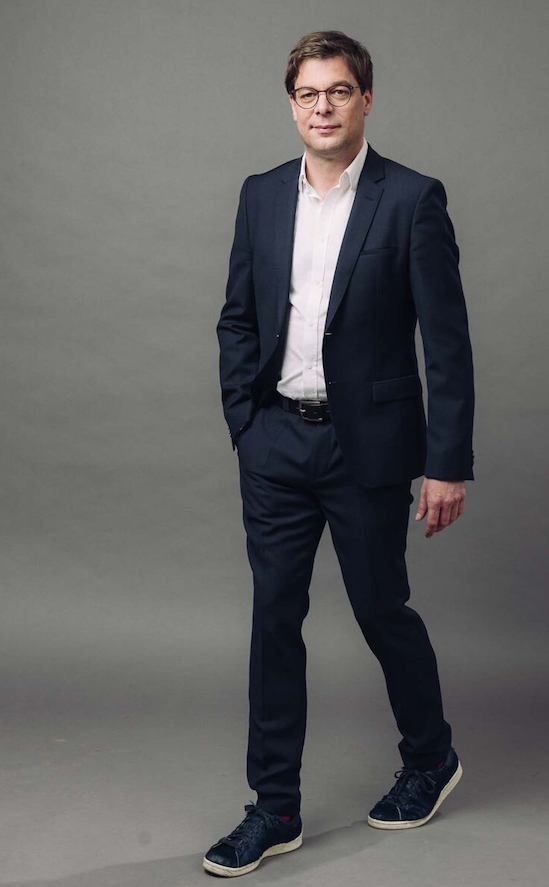 Reading your article I was struck as to why arts journalism isn’t conducting these kinds of investigations during a war in which so many cultural figures – and organizations, and programming – are affected.
Reading your article I was struck as to why arts journalism isn’t conducting these kinds of investigations during a war in which so many cultural figures – and organizations, and programming – are affected.
Such investigations are normal in sports, for example; we talk about doping, we talk about money in soccer or in American football, in the Olympic Games – we investigate all these strange money transfers, and various timely issues. There, in that world, it is normal; investigative journalism is normal in politics also, and in daily business. It’s just in culture we don’t have that, funnily enough. I think people still think arts and culture is just about beauty, but the problem is with what we see, and how we see it. In order to create beauty there is a system and behind this system it’s a market system, it’s a very old-fashioned system; we have issues of sexism, issues of racism, directors of theatres and orchestras who are guilty in both cases, and why is that so? This is the big question now with Russia. It’s a big issue about money. I don’t know if you’ve seen the Navalny video on Gergiev, it’s quite expansive – we aren’t talking about tens of millions but hundreds of millions. I have been doing examinations for a couple years now and I feel as much support as I’ve got, all these friendly words, there’s a lot of critics. They don’t want the beauty to be destroyed. Lots of people don’t appreciate that.
Is it that they think you are destroying beauty or that you are destroying their deeply-held perceptions of beauty?
It’s their ideas of music, and their aims for it. They go to concerts to get a space which takes them away from all everyday life; they have a busy job, annoying children, perhaps parents in hospital, there’s a war, there’s corona, all these awful things. Then you go for an opera or a concert for two hours and you just switch off the world. It’s like going to a funfair or theme park. The problem is that music was never done for that kind of escapism. Wagner, Verdi, Mozart – they never just did entertainment alone, they always wanted to thrill our brains, and they wanted us to switch on our imaginations, to see the world differently, to find different perspectives on problems and try to solve them – big experiences like love, hatred, war. Music, at least classical, isn’t strictly the entertainment business, and even operetta is not. We have fair trade products, we even have fair trade porn, but we do not have fair trade opera, and this is strange, and I think it’s important we have fair payment for singers, and to expose directors who put their hands on the butts of women; I think it’s important that we don’t have donors who use classical music to wash their money.
So if pandemic wasn’t the tipping point for change, war is, or has become that, whether we like it or not…
Absolutely yes.
… and investigations stemming from the old dictum to “follow the money” have led to criticism of you, including accusations that you are driven by personal vengeance. How aware are you that you are putting yourself out there for attack in conducting the kinds of investigations you do?
Oh yes, I know this, but… why are we doing it? This is the question. I am doing it out of passion for art. I have the same passion for art as the people who go to be entertained, but I am an opera lover, a concert lover – I don’t like Currentzis’ work, I have always said that, but I would fight for him to do whatever he wants, as long as he stays within the terms of humanity, you know? The first question I ask myself as an independent journalist is, why do I do it? And the second question is, how difficult it to be independent? At the Sunday paper I write for, I’ve been contributing there ten years, and we’ve been invited everywhere – we went to The Met, we went to Japan with the Staatskapelle Dresden – and I can tell you honestly, the whole system is corrupt. As a freelance journalist I said, “I don’t want to do that anymore.” I want to write books, do films – mainly I do that now, it’s what pays my living for the most part – music critic is my job, but not my money job. But one has to have a sense of independence. This is what I see with criticism of my work right now: very often, they might say, “he has a vendetta with this person” but… I don’t know what I should have revenge for… ? For whose aims? Mr. Naske now says, “oh he crashed the concert” and I think, “Wow, I am Superman! Maybe I’ll buy Twitter, or be the Musk of classical music!” I didn’t crash the concert, no – it was the Red Cross, Caritas, the ambassador of Ukraine. They are, all of them, people with a brain – they all saw the facts, and said, “Oh we better not do it!” I did present the facts to them but I did not make the actual choice.
So, to answer your question, we have a two-level system of music journalism. One is a bubble, and within that bubble, it works like this: the director calls the critic and says, “Don’t you want to come to the house for a coffee? You can meet maestro!” and “Oh I read your work, I love it! Listen, we have this great concert…” – this is the bubble. The second level of journalism goes more into politics, economy, a place with a completely different perspective on music and its role, and so now, with the Russia thing, the first bubble is exploding. We cannot simply live in this music bubble of incest, we have to open it, and this means you have to be a journalist first. And that is the change within reach now.
That brings up ideas of what journalism is or can be for in the 21st century, which leans at non-investigative things that will please ad tech and make people popular. I don’t write that kind of thing…
I’m like yourself there…
… bit of an old drum for me here, but digital publishing has had an influence on how people think of new and old music, and on how it’s presented, how it’s programmed, the language we use around it – that language has become largely reduced in the chase for clicks and shares. What’s your view?
Those sorts of things do get clicks, sure, but it gets them somewhere else, to those kinds of sites. One you mentioned earlier, somebody sent it to me, but that writer is not on my timeline, if you see my meaning – that’s not the page I’m on. I see my newsletter, sure I have 30,00 followers or whatever, there is a click value oddly enough, but I don’t change what I do, so… I think at least some people see the value of my work. The funny thing is, in corona we all thought classical music would be reset – we saw artists were not paid in America; whole orchestras were fired one day after another; we saw there seemed to be little to no value in musicians or the music. And now with the war, it is exactly the opposite. Suddenly, culture is in the peer group with propaganda, so it becomes important again. And this is so strange. Yesterday we were nothing, and today it’s very important! The truth is somewhere in-between.
And that truth sits differently in different places, because music was (still is) used in various ways as propaganda, particularly where music was (is) perceived as an extension of government. Do you think organizations should demand statements from artists, when these artists were hired, promoted, and given carte blanche by these same organizations for so long?
I do think first of all, we shouldn’t force artists to make a statement. Culture is free, or should be, but… as soon as we smell that somebody is depending on somebody else and misusing art for propaganda, then we have to check: do we mean the same C Major? Is this the C Major of humanism or the C Major of propaganda? We have to check. We see those who are hooked to the system, and we can choose accordingly. In Germany we have 140 theatres which are highly subsidized by the German government, and in most of these theatres we have singers and orchestras, some made up of more than 100 musicians who are from France, Germany, Italy, Ukraine, Russia, Hungary, Poland – and they play together, every evening, and nobody asks what side are they standing on; they know for many years they stand with democracy, humanism, letting the other one live. That’s how it works, and that’s the force of music. We don’t need to ask a thing of them because we already know, but as soon as we smell there is propaganda, a lack of independence, we have to ask the question. This is what makes me angry about Currentzis; he is head of the SWR Orchestra. I and every other German pays 30 euros each month for public broadcasting – which is good, I’m paid through public funds for my films! – but I pay him, his orchestra, and in a democratic system, when a public radio station pays somebody like this, then that person must be able to say, “Mr. Putin’s war is bullshit.” And if he can’t do that, then he has to be paid by somebody else. It is so simple, everybody should understand it – shouldn’t they?
It’s the public funding system: when you’re funded that way you are beholden to the public, which also means you are beholden to public scrutiny. But scrutiny now is often equated with being negative, because it isn’t fluffy PR, which doesn’t generate sexy clicks…
I’ve had this discussion since 2014. With Gergiev, I asked, how can he be the head of the Munich Philharmonic? He supported the anti-gay laws in Russia; he supported the annexation of Crimea; he performed in Palmyra as part of the pro-Assad concert. I have written, since 2014, letters to the head of the Munich Philharmonic, saying, “Do you think your conductor’s views are acceptable?” And it’s always been the same response: “This is the private opinion of Mr. Gergiev; we don’t comment on that.” I mean… no! It doesn’t work! We are doing the same now with Currentzis, and here come the accusations: “Ah, but you just don’t like him!” and “He’s a great musician and you don’t want him to be successful!” and “You don’t like him because he’s an eccentric genius!” and… really, I don’t give a damn. I love complicated people, but that isn’t the issue.
You use the word, “genius” – I have made a conscious decision to stop using it. A lot of terrible behaviour has flourished because of it.
… and that’s what many said to me: “If we would judge these music figures like you do, we wouldn’t have all those great symphonies conducted by (Wilhelm) Furtwängler!” I said, “Well, that’s why we discuss him up to today, he hasn’t gotten out of that question yet!” – and yes, we have to discuss it, things like this are so important!
Scrutiny doesn’t invalidate the work or recordings to you?
No!
So you believe such debates help to contextualize those recordings?
Exactly.
How do you think we ought to encourage audiences who might not know or care about such debates, particularly when they are already nervous about returning to the opera house and concert hall?
I think it happens all by itself already. The conductor Franz Welser-Möst – I wrote his autobiography with him – once said to me, “Look, the successful performances at Salzburg were Elektra, Salome, Rosenkavalier – it was all not really the big Netrebko/Tosca type stuff, but the content operas” – yes, and we got new singers like Asmik Grigorian as well. I think with corona we mustn’t underestimate the appeal of such things, and how those things will change classical music. With my own students, I mean, they are 19-20-22 years old, they are completely aware I am an old white man, and whatever I say about sex, race, politics, is through that filter – I grew up with other rules. But they are right, the young people. We can learn from them. I have two daughters, and I know if they go to classical things, they will have completely different expectations than the people who are in there now, which is our parents. They just want something else. My mum is not interested in my newsletter. She’s like, “Why can’t you just do something nice!”
My mother used to say the same: “Why are you so critical all the time? Why can’t you just go and enjoy the music?!”
Yes, that’s the generation! But what I want to say is, I am very optimistic. I think what happens now, it’s what I said to Welser-Möst also, is, lean back; the train is on the track, just let it go. We don’t have to do anything. I see the criticism of me and I don’t answer it. There was a critic in the 1920s, Alfred Kerr, who wrote a saying that translates essentially as, “what hurts is true ” – so, everything that cuts has a bit of truth. I’m invited to a European orchestra day, and I know the issue now is that the orchestras don’t know how to attract people – the audience is not there anymore – but the thinking of this orchestra who’s inviting me is, “We see the newsletter is successful, tell us what can we do?” My response is: be faithful. If I have a trademark in Germany, it is that everybody knows I’m not corrupt – you can’t buy me. I made enemies from friends, and I’ve made friends from enemies; if I know a conductor who behaves badly, I’ll state it; if I know someone I dislike who does something good, I’ll write. That’s what readers expect from us. And classical as an institution has to be faithful to what it is also; it mustn’t follow any trends. We’re coming into a time when classical will have a division in terms of how it’s presented, between very popular events – where you go to an open-air concert, have a glass of wine, it’s sunny and nice; it doesn’t matter who plays or what is on the programme, it’s just nice, I like them too! – and what I call content-first concerts, where somebody has an idea, and you can feel irritated, angry, happy, touched, moved, inspired, confused, you are shaking, you are upset; this form of presentation will just be … ideas, meaning, depth, craft. These two forms will, I am 100% sure, make up the future of the classical world. And all the mediocre music and presentations, like “Oh let’s put on Rigoletto because he’s in it and she’s in it” – why? Why should people go to see that?
It’s the star system many houses operate on – the wealthy will pay for the people they want to see perform live…
The Salzburg Festival has this problem…
… which then is playing to another bubble.
Yes, and this bubble has learned in corona, that sure, it could be cool if you pay 500 dollars for a ticket, that’s 1000 dollars for two, but hey, we can go for a super-fancy dinner, with the chefs cooking our fancy steak at the table in front of us and putting gold leaf on it at the end…
That amount of money I could see a hell of a lot of live music and theatre in Berlin…
Yes, but the super-rich I’m talking about aren’t interested in doing that kind of thing – opera for the rich, we see it in Salzburg, it’s a status symbol, or it was … the rich now have different hobbies as well, they have a yacht and go sailing or have tons of galleries; opera isn’t the hot spot now, it’s not the place now to be seen. Not anymore.
Yet so many marketing departments are desperately trying to push the ‘elite’ image and tie it to influencer culture…
… yes, because what is the thing you are not able to buy? It has always been emotions. You can go to a prostitute and they will do precisely what you ask her to do, or him to do, and perhaps that pleases you, what is done, but it doesn’t touch you, it’s just gymnastics. But culture can deeply emotionalize us, and if we have heard the Kindertotenlieder, we can’t have champagne afterwards and laugh away, or we don’t want to, at all. We want to go home and sip water and think, and fall asleep and wake up and go, wow, what was that experience? I think that’s much better. But as journalists and artists, we have to think about why we do these things – like, why do I write? Do I write a newsletter every Monday because I have to write a newsletter every Monday? Or do I do it because I have the chance to say something to lots of people every Monday? I don’t do it because I have to, but because I have the chance to, but I have to find something which I really want to say every Monday. If I don’t find something, I don’t write.
That’s precisely how I work – the inspiration has to be there. I have to sit and read and think and research, and then think again, for long periods of time.
Exactly. It has a lot of value, that style. Like us talking now, too. I’ve been working on this article for four weeks now, and I’ve also been doing research for two years now for a podcast project set to come out in November. That’s why we can be successful, because we take the time, we don’t have to react to everything, or if we see something we immediately say something. This Twitter-Facebook thing is fun but it belongs there, in that world; for an article you have to have an idea. Journalism can be smart, can be serious, and can be entertaining – this is what is difficult, combining them all. So I find it important to have conversations like this. There’s this shitstorm coming at me about my current investigations, and I rang some colleagues about it. I said, “I know we’re supposed to be competitors but can we please stop that” – because there’s enough topics now. But it’s because of these current investigations that I’m supposedly the bad guy, “Axel has a beef with Currentzis” – I said to these colleagues, “Can you please investigate this foundation also? Can you look it up? If I do everything, it’s not right.” I rang five or six different colleagues from different papers and said I’d share my information and my sources with them; I am not the story here. There’s enough for all of us. We have to have this sort of lobby as well, to support those who have ideas about a better way of journalism and of talking about classical music. I mean, realistically, we reach 5% of people at most in discussing this.
But that’s the problem: there aren’t enough people talking about this, which is largely owing to the realities of contemporary publishing. What do you think might change?
There are more and more of us doing this kind of work, and there will be even more, because the younger ones are coming. For them it is normal to ask these kinds of questions. In my 50-year-old wisdom (laughs)… perhaps I am able to see what is coming. Our role can be to open the doors. I don’t need this world anymore, really – I have my films, and my other work – but I can open the doors and prepare the path for younger ones to come. They are not interested in this old classical bullshit – why should they be? It’s boring.
Not necessarily, but the way it’s been presented to them is boring.
That’s true.
It’s the divide between the way something is presented, and the thing itself. But what do you think are the next steps in our world, then?
I think it’s all these small steps, one goes ahead, the other one follows, the other one moves ahead – change is a process, and again, this is why I appreciate conversations like this. We must be conscious of what we are doing, and then we can go and make these changes, and know we are not alone. We know why we are doing it, and that matters.

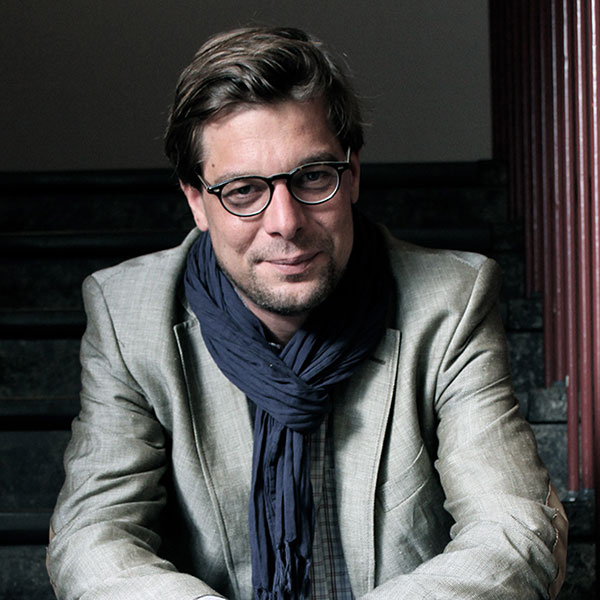

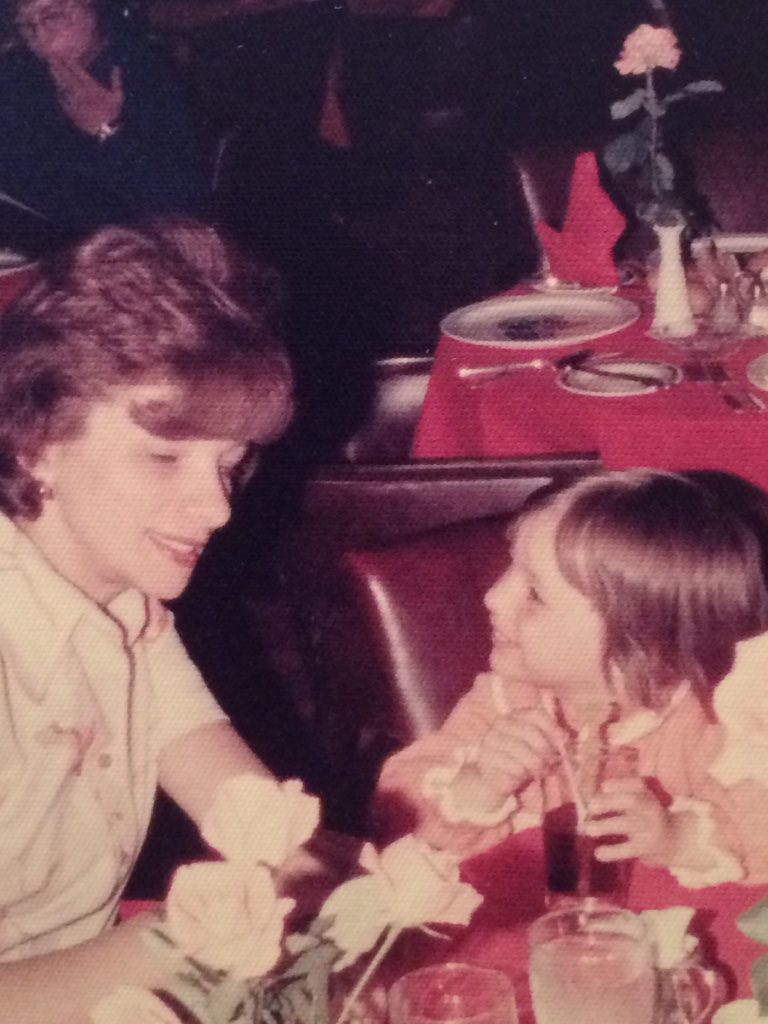
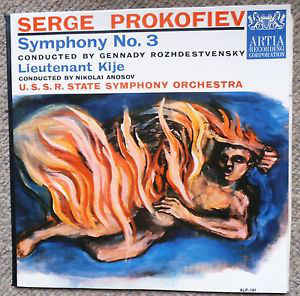 Still, I realized on some intuitive level, and partly through direct experience playing those modern works, that there was an entire cosmos I was missing. Exposure to world cinema confirmed that feeling, and led me to sounds that opened the door of discovery slightly wider; from there were trips to the local library for cassette rentals. Winter months
Still, I realized on some intuitive level, and partly through direct experience playing those modern works, that there was an entire cosmos I was missing. Exposure to world cinema confirmed that feeling, and led me to sounds that opened the door of discovery slightly wider; from there were trips to the local library for cassette rentals. Winter months